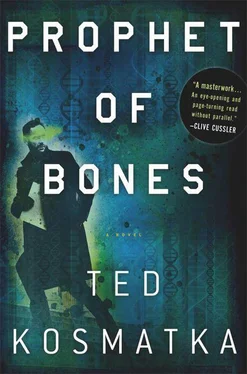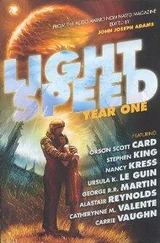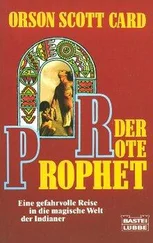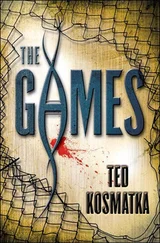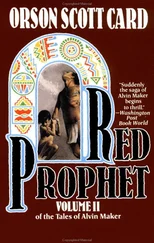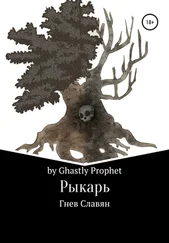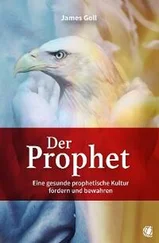The gene freaks lived and breathed DNA. They liked Paul because his sequence was rare. Paul had mitochondrial haplogroup D, a lineage common in East Asia. On his Y chromosome, he was R1a—a type common in Norway, Germany, Scotland, and Ukraine. It was a rare haplogroup combination, Far East meets far West, and it was almost never found in bones you dug from the ground. It made Paul’s DNA easy to identify, which, in turn, made him invaluable as a sampler.
Other bone techs weren’t so lucky. Jason had the western Atlantic modal haplotype (WAMH), a subset of R1b and the most common haplogroup in the Western world. Two others had the Cohen modal haplotype, and several Asian researchers possessed haplogroup C3, the famous twenty-five-marker Y-DNA profile thought to have descended from Genghis Khan and now found in nearly 8 percent of men across huge swaths of Asia and the Middle East. That was Hongbin’s haplotype, a distinction of which he was inordinately proud.
“Pestle,” Paul said.
“All yours.”
But Greg Davis was the worst.
Greg Davis made the gene freaks cringe.
He had CRS itself, the Cambridge reference sequence. The sequence that all others were defined by their comparison to—the veritable mitochondrial holotype for the entire human species.
And there were other things, too, other pieces of history found in the lab.
Like MacAlister, one of the older lab techs.
“Pestle,” Hongbin said.
Because Y chromosomes are passed from father to son, certain haplogroups associate with certain surnames. It was discovered several years ago by a researcher named Sykes that whole sprawling clans from Ireland and Scotland carried the same type of Y chromosome—a version of which could be traced back through the centuries to the historical figure named Somerset, the father of the clan Donald and the paternal ancestor of most of the MacDonalds, MacDougals, and MacAlisters in the world.
Somerset was the one who beat the Vikings back, who drove them out of Scotland after centuries of Viking raids. He united the clans against the invaders and became the greatest of the Gaelic kings. And it was only later, centuries later, after his descendants had grown and spread to the corners of the earth, after DNA technology had matured and advanced, that it was learned that this great Gaelic leader, who’d finally defeated the Nordic horde after generations of Viking rape and pillage, had himself carried Icelandic blood down his paternal line—the product of some ancient raid. And, therefore, it had been a man with a Viking Y chromosome who’d finally driven the Vikings from Scotland.
“Pestle,” Paul said.
Thus does it work in the world. The wrong you do comes back to destroy you.
Gavin woke from a nightmare somewhere over the Pacific. He’d sweated through his shirt despite the airplane’s chill. He blinked and rubbed his eyes. There was no relief upon waking, because once his eyes were open, he remembered where he was and where he was going. There was no waking from that.
He sat up straighter in his seat, trying to shake the dream from his head. Something about the jungle, a shape pursuing him in the darkness. The woman sitting two seats over from him hadn’t stirred, which meant he hadn’t shouted. So there was that, at least. She was reclined in her seat, blond hair falling across a peaceful face. He felt a momentary pang of envy. It had been a long time since he’d slept without bad dreams. He checked his watch: four A.M.
There would be no more sleep for him.
It started to get light a little after five-thirty, a gradual whitening of the clouds beyond the windows. He flagged down the flight attendant as she passed.
“Could I have something to drink?”
“Sure,” she said. “What can I get you?”
“Water.”
It came with ice. He drank it down and stared out past the wing at the brightening sky. He liked looking out the windows of airplanes. It was a view he never grew tired of. Down below, an ocean materialized from the gloom. The sun rose quickly over the next ten minutes; they were flying east, toward the dawn. A ridge of low white, wispy clouds ran in a line beneath the airplane, throwing dark patches of shadow on the glittering water. From this altitude, the surface of the ocean was rough and pebbly—not like waves but like the skin of an orange.
Gavin hadn’t been sure he would use the airline ticket until he used it. Even standing in line, he hadn’t been sure. A few times, he’d almost turned around and walked the other way. Gotten back in his car. Pulled out of the parking garage. And what?
That was the question that walked him through airport security and put him in this seat. Because it was a question with no answer.
Come.
And here he was.
Pretending there’d ever been a choice.
The plane began its descent to LAX a little before eight. One moment they were out over flat water, and then he saw white breakers, a beach, and America rose up to grab them. A gentle thump, the sound of the wheels. The longest leg was over. Once off the plane, he found that his connecting flight had been delayed until almost eleven. This left him with nothing to do and several hours in which to do it. For such circumstances had alcohol been invented.
He found his way to the airport bar and ordered a White Russian. Drank it down.
Then another.
Here self-destruction could kick in, if he let it. If he drank too much, they might not let him on the next flight. He’d heard of that happening. It wouldn’t be his fault. Gavin supposed that in such ways people often killed themselves, if they lacked the will to do it directly. Taking too many pills, all the while telling themselves they’d be fine. Taking that next drink. Doing it by half measures—ceding control, not their fault. Rolling the dice.
“You want another?” the bartender asked.
“No,” Gavin said. “Two will do me.”
He stood and stretched. He found his way to Terminal 6.
Forty minutes later, he boarded his connecting flight.
He’d packed light for the trip. Three shirts, three pairs of pants, three changes of underwear. It had seemed the reasonable thing to do. Three days’ worth of clothes. He tried not to think about the ticket being one-way.
The plane took off, and this time they flew inland. An hour later, gazing out the window, it became obvious how empty the land was of people, if not of their works. From this altitude, you might see roads scratched across the desert like Nazca lines. And farther east, occasional farms, spread like checkerboards—and in the corner of one farm he imagined a house, and in the house a room, and in the room a bed, and on the bed a man. The only one for miles.
Hours later, the plane landed and they were in a new city, and passengers again filed out, into the airport terminal.
Ten minutes after that, on the other side of security, stood a man with a sign: GAVIN MCMASTER.
The man was young and black, dressed in a dark suit and tie. He held the sign with casual boredom, as if he might have been there for quite some time.
Gavin walked up to him. “I’m your guy.”
The man nodded. “Right this way, sir.” He took Gavin’s bag. “Your car is waiting.”
Gavin had time to wonder if he was just a regular car-service employee or something more. He didn’t have long to wonder.
The noise of the street hit him when the glass doors slid open. Buses and taxis, honking horns, the sound of tires. The smell of exhaust.
The vehicle was a limo, long and sleek and dark blue. The car-service man popped the trunk and placed his bag inside. Then he opened the rear curbside door for him. “If you will, sir.”
Gavin climbed in and sank into soft leather.
Читать дальше
